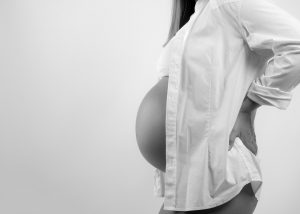
Fertility is the ability to reproduce. Fertility differs from person to person and their way of life and their surroundings. Those who cannot produce a baby may take avenues such as IVF gender selection to help facilitate pregnancy.
There are a lot of factors that affect your fertility, some might be in your control and some might be out of your control. Factors that are beyond your control include natural factors are medical issues that affect your ability to get pregnant.
Your choice of lifestyle also affects your fertility. Good Lifestyle choices lead to higher chances of conceiving and a bad Lifestyle leads to a low chance of conceiving.
Both women and men may have fertility issues but the factors for it, however, may not be the same as the bodies are different and play different roles.
Following are some of the lifestyle factors that affect your fertility –
1. Medical conditions caused by lifestyle
Women
i. Sometimes there may be ovulation problems that affect the release of the eggs from the ovaries. This is generally due to hormonal disorders like polycystic ovary syndrome also known as PCOS or PCOD or thyroid issues (hypothyroidism or hyperthyroidism) and hyperprolactinemia.

ii. There may be uterine deficiencies or cervical deformities such as fibroids or tumors in the uterus.
iii. The fallopian tube may have a blockage or may have suffered some damage which is a result of pelvic inflammatory disease.
iv. Endometriosis or early menopause also the reasons of fertility being affected.
v. If a woman has medical conditions that prohibit her from becoming pregnant, she can again use IVF and find a surrogate to carry the baby. This also allows the parents to consider looking at baby gender selections.
Men
i. Infections caused due to bacteria can affect sperm count, motility and quality.
ii. Ejaculation can also affect fertility. If the semen enters the bladder instead of coming out of the penis, it is known as retrograde ejaculation which affects fertility.
2. Lifestyle factors that affect your health
Smoking– In men, smoking leads to lower sperm counts and the sperm that is produced may be irregularly formed. It also decreases sperm motility. In females, smoking can age the ovaries and decreases the supply of the eggs. It affects your cervix and fallopian tubes and raises the chances of miscarriage or ectopic pregnancy.
Obesity and malnourishment– Excess weight leads to hormonal changes that affect your fertility. It leads to low sperm count. Women who are obese underweight may have problems with ovulating.
Drugs and Alcohol– It is always advised against drugs and alcohol. It impacts male and female fertility greatly and negatively. Marijuana and cocaine can reduce the quantity and quality of sperm. Steroids can diminish the size of testicles. Drinking alcohol before pregnancy may lead to ovulation issues and difficulty in conceiving.
Stress – Stress greatly affects the fertility of both the sexes. Chances of conceiving may turn out less and the shape of the sperm changes. Stress also invites problems like high and low BP, diabetes, thyroid, changing metabolism, heart ailments, and almost all the millennial disorders.
Caffeine– The intake of caffeine can also prove harmful if consumed in great amounts. It affects the sperm count in men and also creates ovulation problems in women.
Physical activities– Excessive and intense physical exercises and labor leads to infertility in women and men.
Diet and sleep– If the diet is not proper and nutritious, it may lead to weakness and other medical conditions affecting fertility. If you also don’t get enough sleep, it stresses the body more, which may affect your fertility.
Safe sex– Unprotected sex with many partners can increase your risks to sexually transmitted diseases (STDs) resulting in infertility in both the sexes. It also affects the DNA of the sperm and the egg. It also affects the health of the sexual organs.




